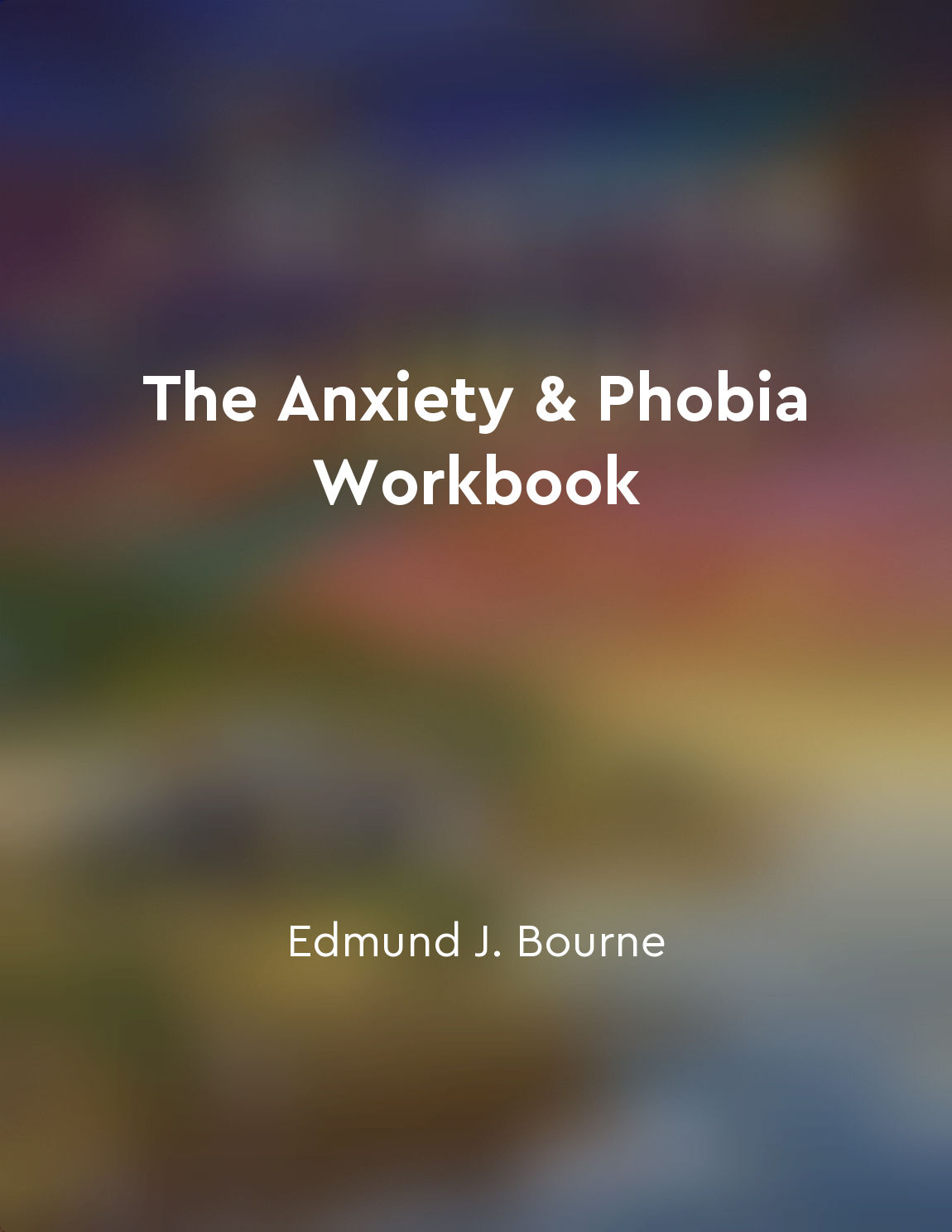Recognizing triggers can help manage anxiety and phobias from "summary" of The Anxiety & Phobia Workbook by Edmund J. Bourne
Understanding the triggers that set off anxiety and phobias is essential in learning how to manage and eventually overcome these overwhelming feelings. By identifying the specific situations, thoughts, or emotions that lead to heightened anxiety, individuals can develop effective strategies to cope with and reduce their symptoms. Triggers can vary greatly from person to person, so it is important for individuals to pay close attention to their own personal experiences and reactions. By keeping a journal or diary, individuals can track patterns and trends in their anxiety or phobia symptoms, helping them to pinpoint the specific triggers that are causing distress. Once triggers have been identified, individuals can begin to implement strategies to manage their reactions. This may involve practicing relaxation techniques, such as deep breathing or progressive muscle relaxation, to help calm the body's stress response when faced with a trigger. Cognitive-behavioral techniques, such as challenging negative thoughts or beliefs associated with triggers, can also be effective in reducing anxiety and phobia symptoms. In addition to individual coping strategies, seeking support from a therapist or counselor can be beneficial in developing a personalized treatment plan for managing anxiety and phobias. Therapists can help individuals explore the root causes of their triggers and develop strategies for gradually facing and overcoming feared situations.- Recognizing triggers is a crucial step in managing anxiety and phobias. By understanding what sets off these overwhelming feelings, individuals can take proactive steps to reduce their symptoms and regain a sense of control over their lives. With time and practice, individuals can learn to effectively manage their anxiety and phobias, leading to improved overall well-being and quality of life.


